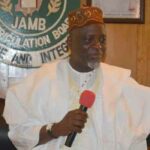One reason Nigeria has become the poverty capital of the world is because the poverty of a nation is a function of ideas more than anything else. Ideas matter for economic development because they have consequences on policy choices and outcomes, and therefore can keep a country poor or lead it in the direction of prosperity. For Nigeria particularly, the biggest problem of economic development is ideational, because, with the innocence and credulity of a young bride, we have bought, often hook, line and sinker, into certain ideas about development that are either impossible, inadequate or simply useless.
Consider this idea called privatization. In August 2016, I attended a Chatham House event in London during which then Minister of Power, Works and Housing and current Minister of Works and Housing, Mr Babatunde Fashola, spoke on the topic “Developing Power and Infrastructure in Nigeria: Strategies for Successful Reform”. The Buhari government had been just over a year at the time, and the initial euphoria and high expectations were already giving way to disillusionment.
I was personally keen to hear Fashola speak because I thought his expanded ministry would be key to the then new government’s legacy. The man disappointed, however. His over two hours of talk didn’t offer much in substance, even when it was only about electricity rather than the broader issues of infrastructure in Nigeria that the topic suggested. He reeled out the oft-cited challenges in the Nigerian power sector and laid the blame for these on previous administrations, which was fair enough. But his only solution to the problem was that he would open up vistas for private capital and capacity to lead investments in reforming the sector. And that was it.
Five years on, how much private capital, foreign or otherwise, has Nigeria attracted to develop the power sector, or any other sector for that matter? The problem is not so much that the private capital has not come; it is believing the idea that privatization always works. It doesn’t. As the economist, Dani Rodrik argues in his influential book, Economics Rules: The Rights and Wrongs of the Dismal Science, economic rules work, but they do so not universally as most economists would suggest, but in very specific circumstances of place, time and context.
In other words, for our case, the point is not that privatization is a bad idea. It isn’t. But believing that it will work well in all sectors in all countries and at all times is a bad idea. Privatization of the telecoms sector has worked admirably well for Nigeria, even with challenge of relatively poor quality service alongside high costs. But that is no guarantee that it will work well for the power sector, since very different factors and circumstances may well apply in the two sectors. This is the real point of Rodrik’s book. The key task, for Nigeria therefore, is knowing where and when privatization would work well, and where it wouldn’t, not rote beliefs in the idea of privatization itself.
Consider also the idea that corruption is what is holding Nigeria back. This is one of the oldest and most deeply entrenched ideas in Nigerian society. Corruption is the poster child that those in government, in opposition, and the public blame for all of Nigeria’s woes. And in the newspapers and other media, we speak of corruption with some of the most egregious metaphors: ‘cankerworm’, ‘cancer’, ‘hydra-headed monster’, and so on. Still, high levels of corruption do not fully explain why Nigeria has not fulfilled its economic potentials.
It is true that for every country, corruption undermines aspirations of economic development, especially where it is so widespread among both leaders and followers as we have in Nigeria. But ‘fighting’ corruption can also be very damaging to the economy and society as the corruption it purports to fight, especially if it is the sort of selective and unsystematic fight against it that we routinely practice. Besides, the absence of corruption in a country does not automatically translate to economic prosperity, just as corruption cannot by itself alone prevent economic progress.
So for Nigeria particularly, any serious thinking about the economy should present us with a model that can work despite high levels of corruption because there is simply no magic that can significantly reduce corruption in this country any time soon, and we cannot wait for the end of corruption in order to develop and end poverty. After all, for most countries, economic development has always been accompanied with high levels of corruption, up to a point. China was a very corrupt country in 2001, and it is still a very corrupt country today in 2021. But in between, they have lifted 600 million people out of poverty. In the real world, I will have that.
In other words, the entrenched idea that corruption is the only or the main problem of development in Nigeria may in fact be a bigger problem than the actual scale of corruption in the country. Knowing that is important, but even more important is working out an economic model that can work for us even with the corruption in the country, instead of the self-flagellation about corruption we are frequently inundated with in the media, universities and civil society organizations.
Consider, yet again, the near fetishism with “small and micro enterprises”, which are generally associated with poverty reduction strategies. But these are perhaps the most troubling ideas in use in Nigerian policy circles today. The premise is in fact attractive: if we can have enough small and micro businesses which don’t require much capital, we will be creating jobs and by implication lifting millions out of poverty. So nearly all poverty reduction strategies in Nigeria in the past 25 years are based on versions of this premise.
This is why state governments used to favour buying and distributing Jing Chen motorcycles for young unemployed men to use for Okada in towns and cities until they became more useful in compounding insecurity. It is why the Central Bank of Nigeria recently claimed to have disbursed billions of naira to over 3 million Nigerians in several different poverty reduction or employment creation programmes. It is also why, as a reader of this column once told me, a non-governmental organization would often give a rural woman a goat this year and expect the goat to have doubled by the next.
Yet, if you wanted to keep a country poor, you could not have settled for better strategies than these. True, for a woman in a certain socio-economic situation there is a powerful psychological effect of having a goat to call ‘my own’, since ownership of material property of any kind is empowering. It is also good to receive a bank alert for N300,000 from the government if you were an employed graduate starting a business.
But these approaches are grossly inadequate for solving the problem of poverty for nearly 90 million people. There is no number of small and micro enterprises that could lift a country the size of Nigeria out of poverty. The answer, which is almost never talked about, is big business, not small or micro fries.

 Join Daily Trust WhatsApp Community For Quick Access To News and Happenings Around You.
Join Daily Trust WhatsApp Community For Quick Access To News and Happenings Around You.


